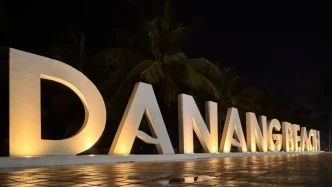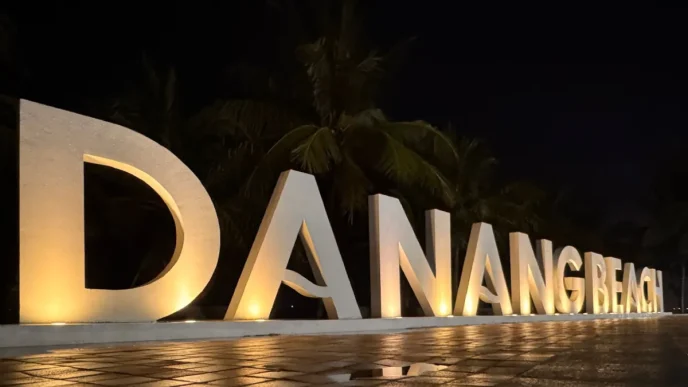In a landmark case that has sent shockwaves through Singapore’s legal and financial sectors, the Ministry of Law (MinLaw) has concluded regulatory actions against several law firms implicated in a S$3 billion (~US$2.3 billion) money laundering investigation. The probe, which culminated in island-wide police raids in August 2023, has exposed significant lapses in anti-money laundering (AML) compliance among legal practices involved in the conveyancing of high-value properties. As penalties are imposed and lawyers face potential disciplinary action, the scandal raises critical questions about the robustness of Singapore’s legal oversight and its reputation as a global financial hub.
Uncovering the Scandal
The billion-dollar money laundering case, one of the largest of its kind in Singapore’s history, centers on illicit funds generated from an illegal gambling ring with bases across Southeast Asia, primarily targeting punters in China. Investigations, which began in 2021, led to sweeping raids last year that resulted in the seizure of over 150 properties, including luxury homes in Singapore’s most exclusive neighborhoods. Alongside these assets, police confiscated luxury cars, watches, jewelry, designer goods, cryptocurrency, and substantial amounts of cash.
At the heart of the latest developments are six law firms and five individual lawyers named by MinLaw for breaching AML obligations under the Legal Profession Act 1966. On August 1, 2024, the ministry released details of regulatory actions against four firms—Anthony Law Corporation, Fortis Law Corporation, Legal Solutions LLC, and Malkin & Maxwell LLP—following earlier announcements on July 15. Two additional firms, William Poh & Louis Lim (now Louis Lim & Partners) and Templars Law LLC, were also identified after the conclusion of inquiries. The firms were involved in the conveyancing of properties worth hundreds of millions, with transactions ranging from S$40 million (~US$30 million) to S$398.7 million (~US$298 million) in total value.
Conveyancing, the legal process of transferring property ownership, emerged as a critical weak point in this scandal. Under Singapore’s AML framework, law practices are required to conduct thorough risk assessments of clients, perform customer due diligence proportionate to identified risks, and file suspicious transaction reports (STRs) with the police if money laundering is suspected. The failures of the named firms to adhere to these obligations have drawn intense scrutiny, with MinLaw highlighting inadequate scrutiny of transactions, insufficient documentation, and a lack of enhanced due diligence even after filing STRs.
Penalties and Reprimands
Among the most heavily penalized firms is Anthony Law Corporation, which represented nine clients in transactions for 25 properties valued at S$135 million (~US$101 million). MinLaw noted that the firm failed to verify clients’ explanations for funding from unrelated third parties—widely recognized as a red flag for money laundering. Despite filing STRs, the firm did not document its rationale for continuing to act for these clients, nor did it implement adequate risk mitigation measures. As a result, Anthony Law was fined S$100,000 (~US$75,000), and one of its lawyers, Tan Chau Chuang, was referred to the Law Society of Singapore for potential disciplinary action.
Fortis Law Corporation, which handled transactions for 55 properties worth S$398.7 million (~US$298 million) on behalf of 16 clients, was fined S$30,000 (~US$22,500). The ministry pointed out the firm’s failure to verify claims that payments originated from legitimate remittance companies. Two of its lawyers, Andrew Wong Wei Kiat and Tan Tse Chia Patrick, were also referred to the Law Society, with Wong no longer practicing at the firm. Legal Solutions LLC, representing two clients for 20 properties valued at S$117 million (~US$87.5 million), received a penalty of S$70,000 (~US$52,500) for inadequate documentation of risk analyses and failure to conduct enhanced due diligence after filing STRs. One of its lawyers, Ee Tian Huat Patrick, who no longer works at the firm, was similarly referred for disciplinary review.
Malkin & Maxwell LLP, which acted for a single client in a S$40 million (~US$30 million) property transaction, escaped a financial penalty but was reprimanded for insufficiently in-depth checks on the client’s source of funds, relying instead on assumed third-party verifications. Similarly, William Poh & Louis Lim and Templars Law LLC were reprimanded for lapses in customer due diligence and risk scrutiny. William Poh Tian Hock, a lawyer who managed conveyancing at the former firm before moving to Templars Law, handled transactions for 32 properties worth S$246.7 million (~US$184.5 million) across six clients. His failure to adequately assess money laundering risks led to his referral to the Law Society.
Louis Lim, managing partner at Louis Lim & Partners, distanced himself from the transactions, stating to local media on August 2, 2024, that he had no involvement in the deals handled by Poh and had not been personally engaged in conveyancing since around 2008. The fees earned by the six firms for these transactions ranged from S$15,000 (~US$11,250) to S$170,000 (~US$127,500), a fraction of the property values involved but significant enough to underscore the lucrative nature of such legal services.
Disciplinary Proceedings and Legal Oversight
The referral of five lawyers—Tan Chau Chuang, Andrew Wong Wei Kiat, Tan Tse Chia Patrick, Ee Tian Huat Patrick, and Poh Tian Hock William—to the Law Society marks a significant escalation in accountability measures. Under Singapore’s Legal Profession Act, the Law Society oversees disciplinary proceedings, which are conducted confidentially to assess individual culpability and determine appropriate penalties. MinLaw emphasized that these proceedings are separate from the regulatory actions against the firms and urged the public to refrain from speculation while the process unfolds.
The ministry’s actions are part of a broader investigation into 24 law practices, with 13 cases concluded as of July 31, 2024. Probes into the remaining 11 firms are ongoing, with further details expected upon completion. The director of legal services, Sarala Kumari Subramaniam, who led the inquiries with MinLaw’s support, aims to reinforce compliance with AML obligations through financial penalties and follow-up on remedial measures. The overarching goal, as stated by the ministry, is to maintain Singapore’s status as a clean, money-laundering-free financial hub.
Systemic Implications for Singapore
This scandal is more than a legal anomaly; it strikes at the core of Singapore’s identity as a bastion of financial integrity. The city-state has long positioned itself as a global leader in combating financial crime, with stringent regulations and a zero-tolerance stance on money laundering. The involvement of multiple law firms in facilitating transactions linked to illicit gambling proceeds raises troubling questions about the effectiveness of existing oversight mechanisms. Legal practices, as gatekeepers in property transactions, play a pivotal role in detecting and preventing money laundering, yet the lapses identified by MinLaw suggest systemic gaps in training, enforcement, and accountability.
The scale of the transactions—totaling over S$3 billion (~US$2.3 billion)—also underscores the sophistication of transnational crime networks operating in Southeast Asia. The illicit gambling ring, with its focus on Chinese clients, exploited regional vulnerabilities to funnel proceeds through Singapore’s real estate market, a sector historically viewed as a safe haven for wealth preservation. The seizure of over 150 properties, many in prime districts, highlights how deeply these illicit funds penetrated the city’s economy, potentially inflating property values and distorting market dynamics.
Moreover, the case reflects broader regional challenges in combating money laundering. Southeast Asia, with its diverse regulatory environments and porous borders, remains a hotspot for illicit financial flows, from drug trafficking to online scams. Singapore’s role as a financial nexus makes it both a target and a critical line of defense. While the government has invested heavily in AML frameworks, including the establishment of the Suspicious Transaction Reporting Office and mandatory reporting obligations for professionals, the current scandal suggests that implementation at the ground level—particularly among legal practitioners—remains inconsistent.
Global Ramifications and Future Outlook
Internationally, the fallout from this case could impact perceptions of Singapore’s financial sector. Investors and regulators worldwide may scrutinize the city-state’s ability to prevent illicit funds from entering its markets, potentially affecting its standing in global financial rankings. The Financial Action Task Force (FATF), an intergovernmental body that sets AML standards, is likely to monitor Singapore’s response closely, especially as the country undergoes periodic evaluations of its compliance with international norms.
Domestically, the government faces pressure to tighten oversight of legal and conveyancing services without stifling legitimate business. Proposed reforms could include mandatory AML training for lawyers, stricter licensing requirements for law firms handling high-value transactions, and enhanced penalties for non-compliance. There is also a need for greater transparency in disciplinary proceedings, balancing confidentiality with public accountability to rebuild trust in the legal profession.
For the implicated firms and lawyers, the road ahead is fraught with uncertainty. Financial penalties, while significant, pale in comparison to the reputational damage and potential career-ending consequences of disciplinary action. The Law Society’s rulings will set important precedents for how AML breaches are addressed, potentially reshaping professional standards in Singapore’s legal sector.
As investigations into the remaining law practices continue, the billion-dollar money laundering case serves as a stark reminder of the high stakes involved in safeguarding financial systems. Singapore’s response—both in terms of regulatory reform and enforcement—will be critical in determining whether it can maintain its reputation as a bastion of integrity in an increasingly complex global landscape. For now, the question looms: will these measures be enough to prevent another scandal of this magnitude?
















